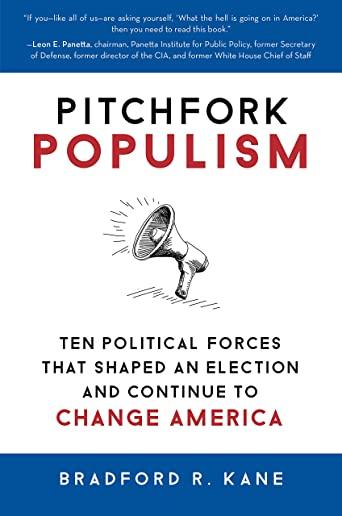
Kane, Bradford R.
product information
description
3A veteran political analyst examines the forces that led to the rise of the current form of populism and considers their continuing influence on the future of American politics. What political, social, and cultural forces led to the election of President Donald Trump? Political analyst Bradford R. Kane explores ten dynamics of American politics and society that played a role in the 2016 presidential election and continue to exert an influence on current politics. The author examines both the present impact of the Trump presidency and the future trajectories of the trends that brought Trump to power. Some of these dynamics have deep historical roots, such as the cultural divide between those who define our national identity in terms of rugged individualism versus those who emphasize community collectivism. The author notes that these opposing viewpoints helped craft our national identity as far back as the 1700s. He also considers the effect of changing demographics, such as the trend that points to the emergence of a new majority composed of combined minority groups, which will have a profound effect on community relations and politics. Kane foresees a return to established policy processes and governing principles after the Trump presidency, as opposed to rule based on the president's personal interests. He anticipates greater empowerment of the electorate as more demographic groups are increasingly enfranchised. Kane also forecasts the potential impact of recent developments on the 2020 election and beyond. Other topics discussed are the role of the media, accountability, globalization, the future of bipartisanship, and more. This astute analysis by a veteran government insider will help Americans understand recent events and provides a roadmap for navigating the future political landscape.
member goods
No member items were found under this heading.
listens & views

CD SAMPLER PT. 1-STORY OF ...
by CD SAMPLER PT. 1-STORY OF SOLO ART RECORDS / VAR
COMPACT DISCout of stock
$9.25
Return Policy
All sales are final
Shipping
No special shipping considerations available.
Shipping fees determined at checkout.






